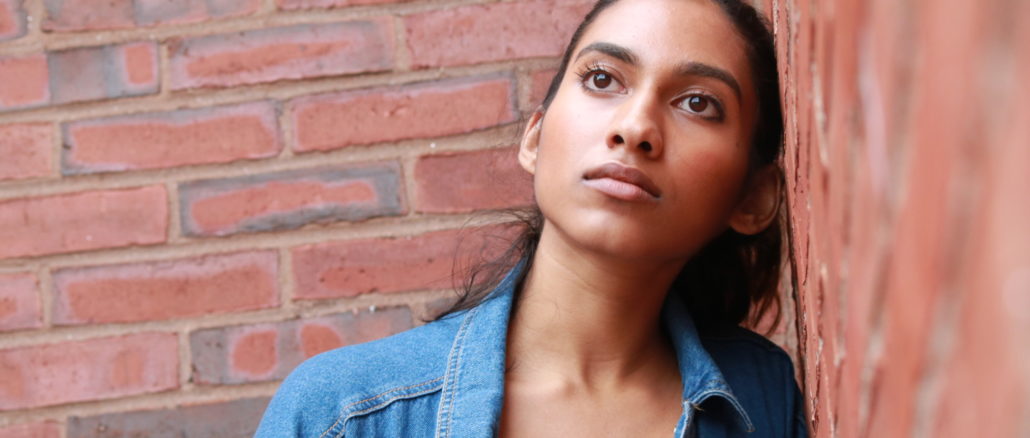
This series spotlights musical artists from The Nasiona‘s first compilation album, Volume 1: Petrichor.
Mallika Vie’s tracks “Bluebells Still Grow” & “Since My Baby Said Goodbye” are featured in the volume.
Mallika Vie is a soul and R&B singer, songwriter, and producer from Boston, MA. In 2020, Vie released her ’60s soul-inspired debut single, “Be Still For Me”, and her 2-song pop-soul EP, “Since My Baby Said Goodbye”. Her influences include alternative R&B powerhouses like Joy Crookes, Solange, and Snoh Aalegra.
Artist statement: There is an inextricable link between the art I create and the social, cultural, and political systems that shape me, afford me privilege, and put me in danger. In making alternative R&B, my goal is to be raw and vulnerable in my expression, take up musical space, to thank the world for what it has given me, and to demand more from the world when it fails to deliver me safety. My music is a space where accountability, empathy, and passion can thrive; where unadulterated soul is not just a genre label, but rather, a call to the human soul; a call to really listen to others, hear their struggles, and destroy the systems that harm them. It’s only within this context of accountability and empathy that I can make my music. My position as an Indian woman making R&B – a genre built by Black folks – demands this.
INTERVIEW
What does countercurrence mean to you, and what is it like to make music when you are outside those mainstream voices that are usually given a platform?
To me, countercurrence is continuing to demand space in an industry where my ethnicity and gender — and therefore, my experiences and thoughts — are both underrepresented. Countercurrence is openly singing about sex, relationships, and mental illness as an Indian woman. Countercurrence is placing a premium on a culture of accountability among fellow musicians and my listeners in an industry and society that lack accountability. Countercurrence is also the active work of dismantling the systems that I benefit from.
Would you always have turned to music as an important avenue through which you express your BIPOC identity? Or have you always found ways to do this, which happen to include music?
Music, at first, was my way of cultivating confidence. I used to be very shy, socially anxious, and lonely in school. I didn’t have a friend group; I ate lunch alone in the bathroom for most of high school, and I got bullied from time to time — some of it generic bullying, and some of it specifically because of my race. So understandably, I was in a bad place: I lacked a sense of belonging and lacked confidence. But I knew I was good at singing, so that’s the one thing I felt like I had going for myself. It was my way of feeling like I did indeed have some value — as jarring as that sounds. Over time, as I grew into myself, my confidence started to come from other avenues. I no longer felt dependent on music as a vehicle to create confidence. So now, instead of music being a lifeline upon which I depend to feel a sense of belonging in the world, there’s a healthier relationship there. I can do it because I love it. I can write about things that are important to me.
What are the differences or similarities you perceive in online and physical music communities, especially when our relationship to proximity has been indelibly altered?
I’ve found music soulmates through online spaces that I wouldn’t have found in physical spaces. I found Aroe Phoenix through Instagram, and we were able to collaborate remotely. Our version of Leon Bridges’s “River” — a song that helped us both find softness and forward motion in a terrifying year — is soon to be released. I found Jai Caden through Soundcloud, and I have the immense honor of jumping on one of his tracks, “Lately” — a piece about depression and trauma. Aroe and Jai are both immense musicians, beautiful people, dear friends, and I’d consider them both to be my musical soulmates. I’m so thankful for the online avenues that allowed us to find each other.
I absolutely still miss the intimacy of physical music communities. Whether those communities are classrooms, shows, or jam sessions, there is an in-person closeness that’s difficult to initiate and maintain online (which just makes those close online relationships even more special).
Do you believe in breaking down the barriers that have long kept BIPOC musicians away from the same opportunities as their white peers, or should BIPOC musicians be looking beyond those traditional guidelines to success?
I think we must break down barriers that have kept BIPOC musicians away from the same opportunities as their white peers, and also re-conceptualize traditional notions of success, which are often rooted in white supremacy culture. I think a re-conceptualization of the traditional notions of success are a form of breaking down barriers that are keeping BIPOC musicians away from the same opportunities as their white peers. That is, I believe these two approaches are interactional.
If you had to solely choose between walking in the legacy of a musician/musical tradition you admire, or forging your own path and inspiring others yourself, which would it be, and why?
To say that I am forging my own path feels to me like a minimization of the immense labor that other BIPOC musicians — both past and present — have done, as well as a minimization of the immense privilege I have as a cisgender, non-black, able-bodied, skinny woman. To say that I am walking in the legacy of another musician feels to me like a minimization of my unique perspective and voice. I think the true power lies in both of these frames, combined.
Volume 1: Petrichor
About the Album
This first volume of The Nasiona’s music series encapsulates all the glorious highs and the searing lows of navigating the world as an empathetic, curious individual. The works contained in this volume — from mournful piano compositions, dazzling spoken word, spellbinding vocal layered-songs, to beautiful instrumentals — express the intricacies of being an artist of color in a too-often indifferent world; and like the scent that lingers long after the downpour, these masterpieces ask you to sit awhile, to close your eyes, to pay attention.
MUSICAL ARTISTS
ALBUM PRODUCERS
Music and oral narrators have always told stories that are as powerful, as moving as personal essays, and we at The Nasiona want to honor these tradition. For the second compilation audio volume of our BIPOC Music + Spoken Word Series, we seek submissions of tracks that align with our vision of centering, elevating, and amplifying Black, Indigenous, and People of Color, shedding light on neglected and intersectional identity experiences, while also celebrating our beauty, intelligence, creativity, and joy.
Whether you record your music or spoken word professionally, or whether you have gone the DIY way throughout; whether you are an emerging indie artist, or have never released a track or album; or whether you have simply felt overlooked by the mainstream musical landscape: we believe in your voice, your story, and your talent; and we want your work!
Tell us about growing up as a third culture kid, about living through trauma, about being misgendered, about slice-of-life instances of resolution. Tell us about your elations, your sorrows, your moments of quiet tenacity, your rallying cries of rage. Send us a track (or two, or three!) that tells a story, whether in words or through instrumentals. If it matters to you, it deserves a platform.
All genres and languages are welcome. If you identify as BIPOC, we want to showcase your work and profile you.
We can’t wait to experience to your work!
Note that we are here to center, elevate, and amplify your work. You keep all the rights to your work.


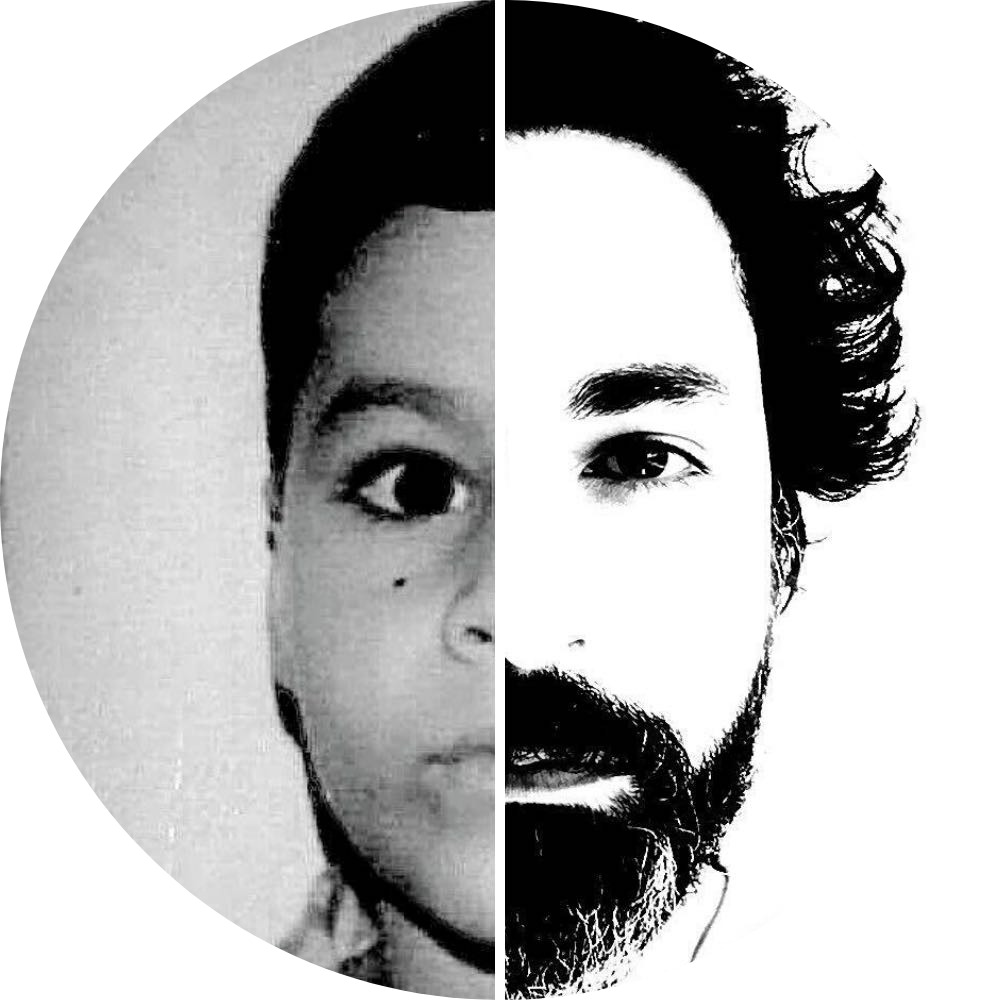
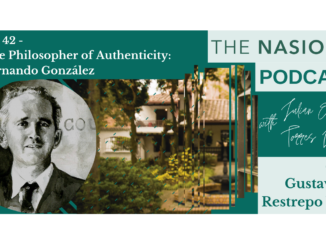
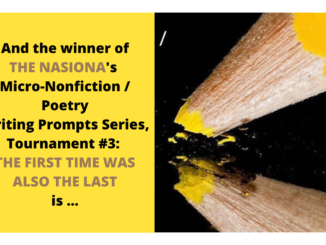
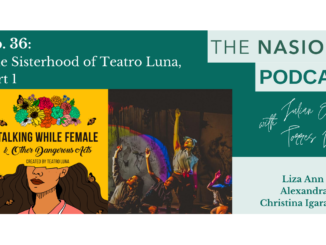
16 Trackbacks / Pingbacks
Comments are closed.